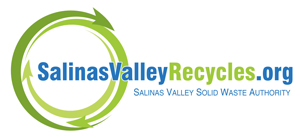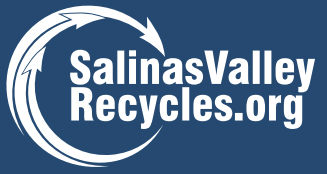Treated Wood Waste (TWW) Is Accepted At All Salinas Valley Recycles Locations




TWW is considered a Hazardous Material
TWW contains hazardous chemicals that pose a risk to human health and the environment. Arsenic, chromium, copper, creosote, and pentachlorophenol are among the chemicals used to preserve wood and are known to be toxic or carcinogenic. Harmful exposure to these chemicals may result from touching, inhaling or ingesting TWW particulate (e.g., leaching liquids, sawdust and smoke).
Visit Department of Toxic Substances Control (DTSC) – Treated Wood Waste (TWW) Frequently Asked Questions Website.
Residential Customers
Salinas Valley Recycles continues to accept TWW from residential customers.
Residents of the Salinas Valley Recycles Service area can dispose of TWW at either of the Salinas Valley Recycles disposal facilities, including the Johnson Canyon Landfill outside of Gonzales and Jolon Road Transfer Station outside of King City.
The service area includes the Cities of Salinas, Gonzales, Soledad, Greenfield, King City, and the eastern unincorporated areas of Monterey County (i.e. Aromas, Bradley, Chualar, Prunedale, Pajaro, etc.).
Households typically generate TWW when a fence or deck is replaced. Households must abide by the following conditions:
- Do not burn the TWW.
- Do not remove or destroy any marking identifying the wood as treated wood.
- Keep TWW segregated from other materials.
- Store less than 1,000 pounds of TWW for no more than 30 days following its removal from use.
- Transport TWW to an authorized TWW facility.
- Identify TWW to TWW facility personnel.
Residents of the Salinas Valley Recycles Service area can dispose of TWW at either of the Salinas Valley Recycles disposal facilities, including the Johnson Canyon Landfill outside of Gonzales and Jolon Road Transfer Station outside of King City.
The service area includes the Cities of Salinas, Gonzales, Soledad, Greenfield, King City, and the eastern unincorporated areas of Monterey County (i.e. Aromas, Bradley, Chualar, Prunedale, Pajaro, etc.).
State regulations limit the amount of TWW transported to a disposal site to 1,000 lbs. per trip.
Treated wood is wood that has gone through a treatment process with chemical preservatives to protect it against pests and environmental conditions. Typically, treated wood is used in exterior applications where ground or water contact is likely.
Treated wood can often be visually distinguished by its appearance. There are several signs to look out for when determining if a piece of wood has been treated or not. What are some things to look for when determining if wood is treated or not?
- Treated wood end tag
- Wood manufacturer stamp codes
- Indentations on the surface of the wood (as seen in the photo above)
- When cut, staining is visible around the perimeter only
- Discoloration (e.g. green or dark brown appearance)
- Odor
Example of pressure treated wood showing indentations from treatment.

Example of an end tag on treated wood:

TWW is charged at the garbage rate because it is buried in the landfill. Regular lumber or clean wood is brought in at a reduced rate because it is recycled. Please separate treated from non-treated wood wastes to receive the reduced rate.
We are happy to help answer your questions.
Please call 831 775-3000 or email info@svswa.org.
Commercial Customers
Salinas Valley Recycles has resumed acceptance of TWW from commercial generators.
TWW generated in the Salinas Valley Recycles Service area can be disposed of at either of the Salinas Valley Recycles disposal facilities, including the Johnson Canyon Landfill outside of Gonzales and Jolon Road Transfer Station outside of King City.
- The service area includes the Cities of Salinas, Gonzales, Soledad, Greenfield, King City, and the eastern unincorporated areas of Monterey County (i.e. Aromas, Bradley, Chualar, Prunedale, Pajaro, etc.)
- The job site/generation location needs to be within the Salinas Valley Recycles service area for acceptance.
Note: Large loads (truck full, dumpster, debris box, roll-off, etc.) need to be delivered to Johnson Canyon Landfill outside of Gonzales.
Residents of the Salinas Valley Recycles Service area can dispose of TWW at either of the Salinas Valley Recycles disposal facilities, including the Johnson Canyon Landfill outside of Gonzales and Jolon Road Transfer Station outside of King City. The service area includes the Cities of Salinas, Gonzales, Soledad, Greenfield, King City, and the eastern unincorporated areas of Monterey County (i.e. Aromas, Bradley, Chualar, Prunedale, Pajaro, etc.).
Yes, you can contact your waste hauler for options.
TWW is charged at the garbage rate because it is buried in the landfill. Regular lumber or clean wood is brought in at a reduced rate because it is recycled. Please separate treated from non-treated wood wastes to receive the reduced rate.
We are happy to help answer your questions.
Please call 831 775-3000 or email info@svswa.org.
Additionally you can visit the DTSC website for more details.


